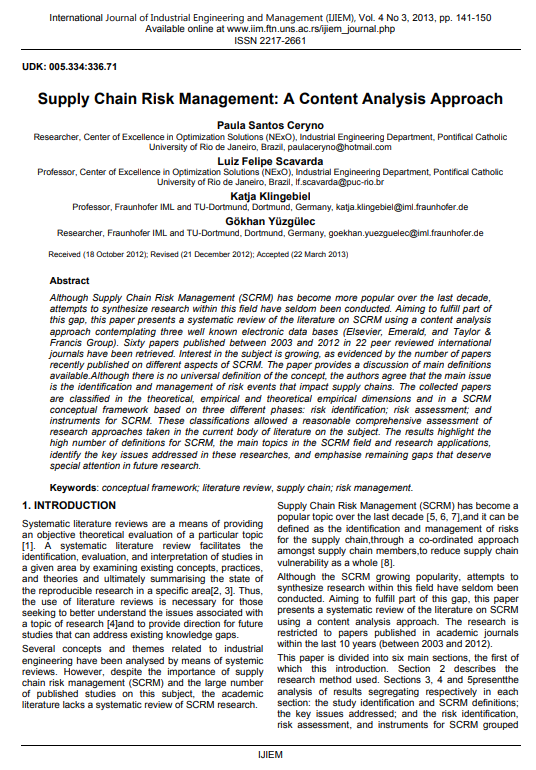
Published 2013-09-30
abstract views: 407 // FULL TEXT ARTICLE (PDF): 0
Keywords
- conceptual framework,
- literature review,
- supply chain,
- risk management
How to Cite
Copyright (c) 2023 International Journal of Industrial Engineering and Management

This work is licensed under a Creative Commons Attribution 4.0 International License.
Abstract
Although Supply Chain Risk Management (SCRM) has become more popular over the last decade, attempts to synthesize research within this field have seldom been conducted. Aiming to fulfill part of this gap, this paper presents a systematic review of the literature on SCRM using a content analysis approach contemplating three well known electronic data bases (Elsevier, Emerald, and Taylor & Francis Group). Sixty papers published between 2003 and 2012 in 22 peer reviewed international journals have been retrieved. Interest in the subject is growing, as evidenced by the number of papers recently published on different aspects of SCRM. The paper provides a discussion of main definitions available.Although there is no universal definition of the concept, the authors agree that the main issue is the identification and management of risk events that impact supply chains. The collected papers are classified in the theoretical, empirical and theoretical empirical dimensions and in a SCRM conceptual framework based on three different phases: risk identification; risk assessment; and instruments for SCRM. These classifications allowed a reasonable comprehensive assessment of research approaches taken in the current body of literature on the subject. The results highlight the high number of definitions for SCRM, the main topics in the SCRM field and research applications, identify the key issues addressed in these researches, and emphasise remaining gaps that deserve special attention in future research.
Article history: Received (18 October 2012); Revised (21 December 2012); Accepted (22 March 2013)

